19, Feb 2026
Over 10 Lakh Customers Embrace Healthier Choices in Zomato’s Healthy High-Five Challenge
New Delhi, Feb 19: Two weeks into Zomato’s Healthy High-five challenge, the data shows a meaningful shift in how urban India orders food: making protein the priority, not an afterthought.
Since February 1, over 10 lakh Indians have collectively begun their High-five journey, ordering healthy meals with over 20 grams of protein more than 15 lakh times. Here’s what the data shows: people are going beyond the first milestone. Over 10,000 customers have earned their first free meal.
A customer from Bengaluru exemplifies this frequency, he has logged 33 high-protein orders in just two weeks, earning multiple free meals along the way. Since Healthy Mode launched in late 2025, a customer from Chennai has placed 811 orders through the feature. These patterns suggest sustained behavior change, not temporary experiments.
The geographic breakdown reveals expected metro dominance: Bangalore leads with 3.78 lakh high-fives, closely followed by Delhi and Mumbai. Interestingly, grilled chicken has emerged as the most-ordered dish in the challenge with over 1 lakh orders in February, suggesting customers are consciously switching to healthier options without sacrificing taste or familiarity.
Aditya Mangla, CEO, Zomato, said,
“We’ve always felt that people want to make healthier choices. They just need it to be simpler and more accessible. The Healthy High-five challenge was our small attempt to enable that. Two weeks in, with over 10 lakh customers participating, it’s encouraging to see not just orders come in, but early signs of habits taking shape.”
Since the launch of Healthy Mode on the Zomato app in late 2025, the feature has driven 74 lakh orders from 12 lakh customers, indicating growing user inclination towards healthy meal options. There’s been a 20% uptick in orders for dishes with ‘High’ healthy scores, compared to September’25.
The Healthy High-five challenge runs till the end of February 2026 on the Zomato app. To participate, order dishes that meet specific nutritional criteria: a minimum of 20g of protein and a high Healthy Score. Healthy Score evaluates dishes on protein, complex carbs, fibre, and micronutrients, and not just calories.
- Every qualifying order once delivered, earns the customer a ‘High-five’
- 4 High-fives unlock a free dish from a curated menu of high-nutrition options listed under the Healthy Mode.
- 0
- By Neel Achary
19, Feb 2026
Ministry of Ayush Marks Unani Day 2026 with National Conference on “Innovation and Evidence in Unani Practice” in Mumbai
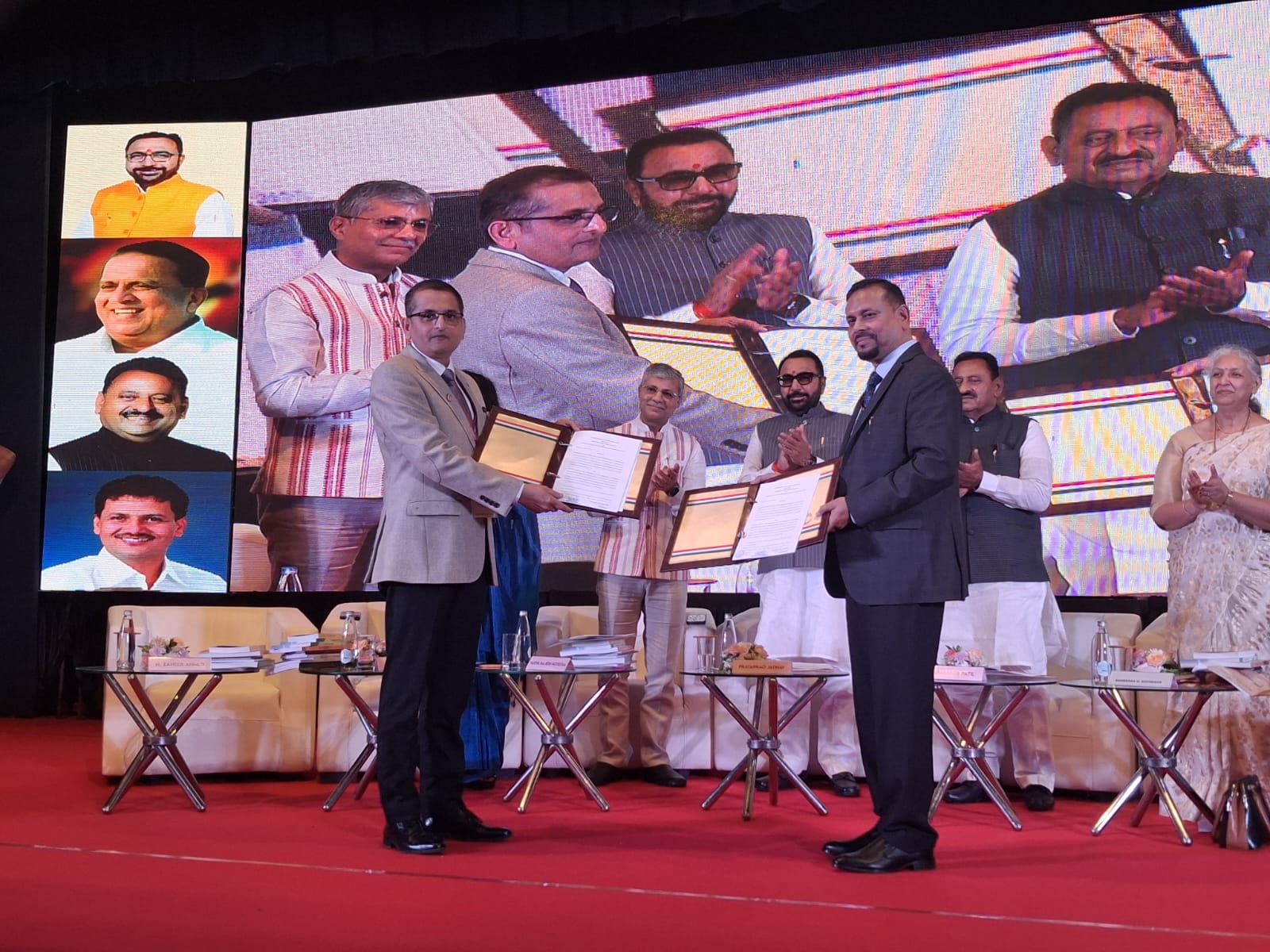
Mumbai, Feb 19: The Ministry of Ayush, Government of India, commemorated World Unani Day 2026 by organising a two-day National Conference on “Innovation and Evidence in Unani Practice” on February 14–15, 2026, in Mumbai. Held under the aegis of the Central Council for Research in Unani Medicine (CCRUM), the conference brought together policymakers, researchers, academicians, and industry stakeholders in a hybrid format.
Shri Prataprao Jadhav, Hon’ble Minister of State (Independent Charge), Ministry of Ayush and Minister of State, Ministry of Health and Family Welfare, Government of India, graced the occasion as Chief Guest. Shri Babasaheb Mohanrao Patel, Minister of Co-operation of Maharashtra, and Vaidya Rajesh Kotecha, Secretary, Ministry of Ayush were present as the Guests of Honour. The event was also attended by senior dignitaries including Ms. Monalisa Dash, Joint Secretary, Ministry of Ayush; Dr. M. A. Qasmi, Advisor (Unani), Ministry of Ayush; Dr. Syed Shah Alam, Director, NIUM, Bengaluru; and Dr. N. Zaheer Ahmed, Director General, CCRUM.
Observed annually on February 11 to commemorate the birth anniversary of Hakim Ajmal Khan, Unani Day highlights the legacy and contemporary relevance of Unani Medicine. The 2026 conference focused on strengthening scientific validation, promoting innovation in diagnostics and therapeutics, advancing clinical documentation, and fostering integration of traditional knowledge with evidence-based medical approaches.
The deliberations addressed the growing need for rigorous research, standardisation, and outcome-based studies to enhance the credibility and global acceptance of Unani practice, particularly in the context of rising chronic and lifestyle diseases.
An industry delegation led by Hamdard Laboratories also participated in the conference, represented by Mr. Abdul Majeed, Chairman and Managing Trustee, Hamdard Laboratories, along with other senior representatives. On the occasion, an MoU was exchanged between Hamdard Laboratories (India), represented by Dr. Santosh Joshi, Head, R&D, Hamdard Laboratories and Dr. N. Zaheer Ahmed, Director General, CCRUM, to strengthen collaborative research and innovation in Unani Medicine.
The conference served as a platform for knowledge exchange, thematic discussions, and showcasing research outcomes aimed at reinforcing the role of innovation and evidence in advancing Unani practice within India’s evolving healthcare framework and the broader vision of Viksit Bharat 2047.
18, Feb 2026
Barbra Streisand Women’s Heart Center Leads $7.5M Aging Study
LOS ANGELES (Feb. 17, 2026) — The National Institutes of Health and the National Institute on Aging have awarded a multi-institutional research team led by investigators in the Smidt Heart Institute at Cedars-Sinai $7.5 million to further study how damage to tiny blood vessels contributes to heart disease, cognitive decline and frailty as women age.
The new, five-year grant to examine sex-based differences in multiple age-related diseases supports the Microvascular Aging Effects—Women’s Evaluation of Systemic Aging Tenacity in Heart, Brain and Frailty study, commonly called MAE-WEST HBF. The acronym is a nod to the late actor, who reportedly once said, “You’re never too old to become younger.”
MAE-WEST HBF builds on prior research from Cedars-Sinai’s Barbra Streisand Women’s Heart Center that showed small blood vessel disease, chronic inflammation and iron buildup in women are linked to impaired heart, brain and kidney function, and declining physical strength.
“Armed with this funding, we are eager to continue uncovering biological mechanisms behind sex-based differences in aging and heart health,” said C. Noel Bairey Merz, MD, the principal investigator of MAE-WEST HBF and director of the Barbra Streisand Women’s Heart Center in the Smidt Heart Institute. “A better understanding of the causes of common age-related conditions in women could lead to more effective prevention and treatment strategies.”
For more than two decades, Bairey Merz and her team have made landmark discoveries in women’s heart health, particularly in coronary microvascular disease—a condition that occurs more often in women and results from damage to the heart’s smallest blood vessels. Symptoms of the condition, which can be subtle, were previously often dismissed, misdiagnosed or undertreated. But improved diagnostic tools and treatments resulting from Bairey Merz’s discoveries have contributed to significant reductions in cardiovascular deaths among women.
The new study brings together a multidisciplinary team of experts, including Pascal Sati, PhD, director of the Neuroimaging Program in the Department of Neurology at Cedars Sinai. Collaborators at UCLA will oversee biostatistical analysis, while those at the University of Texas at Arlington will lead frailty research.
“We now have effective treatments for small vessel dysfunction in the heart,” Bairey Merz said. “If we can better understand its effects on the brain and musculoskeletal system, we may be able to find ways to prevent or slow multiple age-related diseases—including declines in cognition and mobility—in both women and men.”
Although women generally live longer than men do, women experience higher rates of chronic conditions and so spend more years in poor health. Ultimately, investigators hope the new study will pave the way for a future in which healthy aging for women includes earlier screenings, advanced technology, and preventive care that identifies risks and stops diseases before they begin.
“After more than 25 years of progress in women’s cardiovascular research, this grant helps advance whole-person care that supports heart health, brain function and physical strength,” said Eduardo Marbán, MD, PhD, executive director of the Smidt Heart Institute. “All three are equally essential to healthy aging.”
Cedars-Sinai Health Sciences University is advancing groundbreaking research and educating future leaders in medicine, biomedical sciences and allied health sciences.
12, Feb 2026
Akums Drugs & Pharmaceuticals Skills Acid Attack Survivors at Haridwar Facility
Haridwar, Feb 12: Akums Drugs & Pharmaceuticals, India’s leading contract development and manufacturing organization (CDMO), recently engaged with acid attack survivors at its Haridwar facility to build workplace skills and professional readiness, in collaboration with the Chhanv Foundation. The engagement took place over three days and focused on strengthening confidence and preparing participants for professional environments.
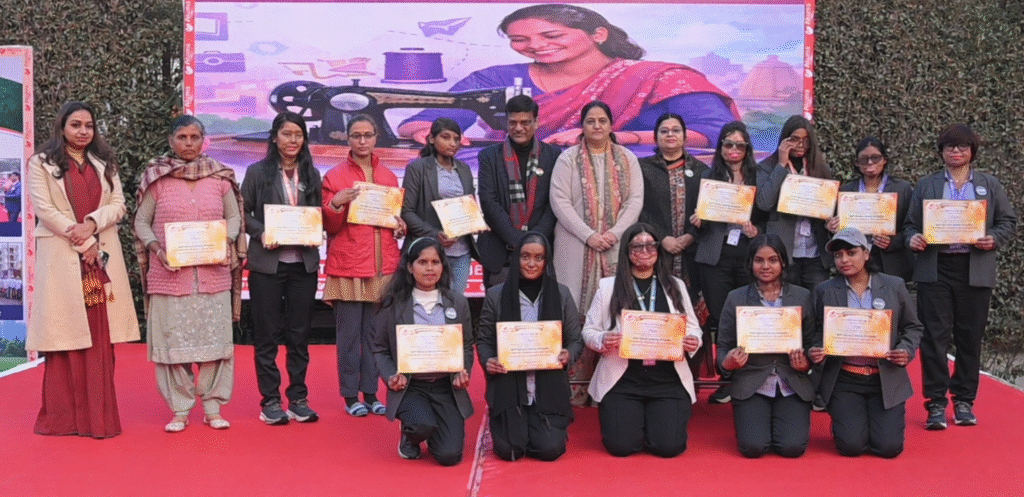
Planned with care and sensitivity, the three-day engagement focused on building practical capabilities. Participants took part in guided sessions on workplace etiquette, personal grooming, communication skills, interview preparation and basic digital tools. They were also introduced to real corporate and industrial environments through plant walkthroughs and interactions with teams across the facility, helping them gain a clearer understanding of professional settings and expectations.
Informal conversations with Akums’ leadership and employees created a warm and supportive atmosphere, encouraging openness and helping participants feel at ease as they prepared for future work opportunities. The engagement closed with a focused discussion on employability readiness and a formal acknowledgement of participation, reinforcing the importance of continued learning and self-belief.
Speaking on the engagement, Arushi Jain, Director, Akums Drugs & Pharmaceuticals, said,
“At Akums, we believe that meaningful inclusion begins with sharing skills and opening doors to real workplaces. This was about helping participants rebuild confidence and see themselves as professionals again. Working closely with the Chhanv Foundation allowed us to create an experience that respected individual journeys while staying closely aligned with the realities of the workplace. We hope this time here strengthens both capability and belief in what lies ahead.”
The Chhanv Foundation has been at the forefront of supporting acid attack survivors across India, working to restore dignity, confidence and independence through rehabilitation, education and livelihood-focused initiatives. Known for its survivor-centric approach, the Foundation goes beyond immediate care to enable long-term social and economic reintegration.
Mr. Alok Dixit, from the Chhanv Foundation, said,
“Rebuilding life after trauma is about more than healing — it is about regaining confidence, independence and a professional identity. Experiences like this give survivors the chance to step back into the world of work with clarity and dignity. We are grateful to Akums for creating a respectful space where learning felt natural and encouraging.”
For many participants, the experience marked an important turning point. One survivor shared,
“Before coming here, I was nervous about entering a workplace again. But everyone treated us with so much kindness and respect. It helped me believe that I can work, grow and support myself with confidence.”
Another participant said,
“Learning how to communicate better and prepare for interviews has changed how I see my future. I am leaving with new skills and the feeling that I still have many possibilities ahead.”
The collaboration with the Chhanv Foundation ensured that the engagement remained survivor-focused and grounded in practical workplace readiness. Through efforts like this, Akums continues to combine its leadership in healthcare manufacturing with a sustained commitment to building skills, inclusion and long-term opportunity.
12, Feb 2026
Kauvery Hospital Launches Bangalore’s Largest Advanced Ambulance Fleet in Marathahalli; Sets 3-Minute Emergency Response Benchmark
Five state-of-the-art ACLS ambulances are strategically positioned across the Marathahalli-Mahadevapura IT corridor. Emergency physicians onboard to begin treatment en route, ensuring patients reach the hospital within the golden hour.
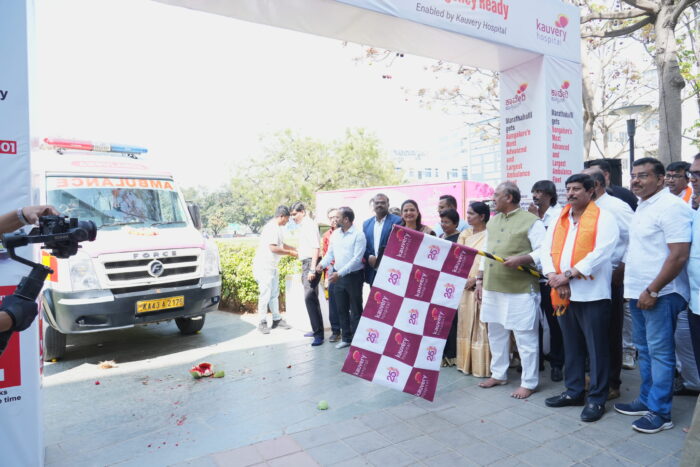
Bangalore, Feb 12: Kauvery Hospital Marathahalli today launched Bangalore’s largest and most advanced ambulance fleet, dedicating five fully equipped Advanced Cardiac Life Support (ACLS) ambulances exclusively to serve the Marathahalli and Mahadevapura constituencies.
Shri Aravind Limbavali, Former Minister and Mahadevapura Task Force Chairman, and Smt. Manjula Aravind Limbavali, MLA (Mahadevapura Constituency), formally handed over the fleet to the RWA community stakeholders at a ceremony held at New Horizon College of Engineering, Kaadubeesanahalli, as part of ‘Ayushmaan Bhava’, a scommunity health initiative.
The ambulance service introduces a 180-second (3-minute) emergency call-to-dispatch protocol. Ambulances are strategically positioned across the IT corridor and neighbouring residential areas. This deployment ensures residents access emergency medical care within minutes of a distress call.
Mobile ICUs Bring Treatment to Patients
These ambulances operate as mobile intensive care units with emergency physicians, trained paramedics, and nursing staff onboard. Treatment begins the moment paramedics pick up a patient. This matters for time-sensitive conditions.
“In emergency medicine, we measure outcomes in minutes, sometimes seconds,” said Dr. Surendar Sambath, Head of Emergency Medicine, Kauvery Hospital, Marathahalli. “The golden hour begins the moment a cardiac arrest or stroke occurs. With this fleet stationed strategically across Marathahalli and an emergency physician onboard each ambulance, we compress the critical window between a medical distress call and advanced medical intervention. For conditions like myocardial infarction or stroke, every minute of delay increases mortality risk. We bring ICU-level care to the patient’s doorstep.”
Each ambulance carries Advanced Life Support medical equipment including cardiac monitors, defibrillators, ventilators, and emergency medications. The service covers head injuries, heart attacks, stroke, road accidents and trauma, labor pain, and pediatric emergencies.
Ambulances positioned across the IT corridor and residential neighbourhood’s mean patients in critical condition reach the hospital facility well within the golden hour. Treatment starts during transport.
Addressing Infrastructure needs in High-Density Urban Corridor
The launch addresses to fulfil the needs in emergency medical infrastructure in Marathahalli-Mahadevapura, one of Bangalore’s most densely populated corridors. Home to major IT parks and residential complexes, the constituency has witnessed exponential population growth without proportionate emergency medical services. Traffic-related delays during peak hours have historically impacted emergency response times. The decentralized fleet positioning directly addresses this challenge.
The service offers free emergency pickups for all residents and operates on GPS real-time tracking for optimized dispatch. Residents now have medical help nearby.
Speaking at the launch, Shri Aravind Limbavali said, “Marathahalli and Mahadevapura are home to hundreds of apartment complexes with thousands of families. This ambulance fleet, strategically positioned in our high-density residential areas, ensures that emergency care reaches our residents’ doorsteps within minutes. I appreciate Kauvery Hospital’s commitment to our community’s safety. When you have 400 to 500 apartments in proximity and an ambulance stationed nearby, you save precious lives during the golden hour. This is the kind of healthcare infrastructure our growing constituency needs.”
Speaking at the launch, Amaresh Lakshminarayana, General Secretary of the Mahadevapura Task Force and President of the Green Glen Residents Association thanked Kauvery Hospital for their collaboration. He highlighted Kauvery Hospital’s close partnership with the Mahadevapura Task Force’s initiative to station an ambulance within every 2.5-kilometer radius will save precious lives during golden hour. Mahadevapura is an IT corridor and experiences significant traffic congestion, which makes reaching an ambulance during critical emergencies a major challenge. This initiative will ensure prompt arrival and save precious lives.
Residents access the ambulance service nearby via the dedicated emergency number 080-6801-6901, available 24/7.
Community Health Initiative Alongside Launch
The event also featured a mega blood donation camp organized in association with the Karnataka Voluntary Blood Donors Association and free health checkups for over 500 residents, with distribution of privilege discount health cards to beneficiaries as part of the birthday celebration of Shri Aravind Limbavali.
9, Feb 2026
Standard Diabetes Test May Mislead Diagnosis and Monitoring in South Asian Populations, New Analysis Warns
New Delhi, India, Feb 09 : A new evidence-based Viewpoint published online in Lancet Regional Health: Southeast Asia highlights that the widely used glycated hemoglobin (HbA1c) test, as available in India, may not accurately reflect blood glucose levels for millions of Indians, particularly in regions with high prevalence of anemia, hemoglobinopathies, and red blood cell enzyme (G6PD) deficiency. Led by Professor Anoop Misra and collaborators, the review questions reliance on HbA1c as a sole diagnostic or monitoring tool for type 2 diabetes in South Asia. HbA1c measurements primarily reflect the glycation of hemoglobin. Any condition that affects the quantity, structure, or lifespan of hemoglobin—such as anemia, hemoglobinopathies, or other red blood cell disorders—can distort HbA1c values and lead to misleading estimates of average blood glucose.
“Relying exclusively on HbA1c can result in misclassification of diabetes status,” said Professor Anoop Misra, corresponding author and Chairman of Fortis C-DOC Center of Excellence for Diabetes. “Some individuals may be diagnosed later than appropriate, while others could be misdiagnosed, which may affect timely diagnosis and management. Similarly, monitoring of blood sugar status may be compromised.”
Shashank Joshi, co-author from Joshi Clinic, Mumbai, added:
“Even in well-resourced urban hospitals, HbA1c readings can be influenced by red blood cell variations and inherited hemoglobin disorders. In rural and tribal areas, where anemia and red cell abnormalities are common, the discrepancies may be greater.”
Dr. Shambho Samrat Samajdar, co-author from Kolkata, emphasized a comprehensive approach:
“Combining oral glucose tolerance test, self-monitoring of blood glucose, and hematologic assessments provides a more accurate picture of diabetes risk. This approach can help refine public health estimates and guide resource allocation.”
Key findings from the review include:
- HbA1c may under- or overestimate blood glucose in populations with high rates of low blood counts (anemia), inherited blood disorders (abnormal hemoglobin), or enzyme problems like G6PD deficiency anemia, hemoglobinopathies.
- In some regions of India ( more than 50% population in some regions, data from 2025), people are nutritionally challenged with widespread have iron deficiency anemia, which can distort HbA1c readings.
- This would affect both diagnosis and monitoring thus misleading clinicians.
- Reliance on HbA1c alone could delay diagnosis by up to 4 years in men with undetected G6PD deficiency, potentially increasing risk of complications.
- In addition, inconsistent quality control across laboratories can further affect HbA1c accuracy, making interpretation challenging
- Public health surveys based solely on HbA1c may misrepresent India’s diabetes burden.
9, Feb 2026
Motorica India Showcases Advanced Prosthetic Innovation at 29th OPAI National Conference
Feb 09: Motorica, a leading MedTech company specializing in assistive technologies and medical cybernetics, participated in the 29th National Conference of the Orthotics and Prosthetics Association of India OPAI, held at the Pandit Deendayal Upadhyay Auditorium in Ahmedabad. The three day national conference aims to highlight the growing importance of innovation and collaboration within India’s assistive technology ecosystem.

The conference brought together prosthetists, orthotists, clinicians, rehabilitation specialists, researchers and technology providers from India and overseas to discuss the future of orthotic and prosthetic care, with a focus on digital technologies, clinical outcomes and accessibility across diverse healthcare settings. As part of its participation, Motorica India showcased its portfolio of advanced prosthetic solutions aimed at improving mobility, independence and quality of life for individuals with limb loss. The company presented real world case studies from metro, tier two and tier three regions, demonstrating how reliable prosthetic solutions can significantly enhance daily functionality and long term rehabilitation outcomes.
Motorica also presented an overview of its Premium Educational Program at its booth, a structured professional training initiative launched in Russia to develop specialised prosthetics engineers for upper and lower limb solutions. The program integrates online theoretical learning with intensive hands-on clinical and manufacturing exposure, reflecting Motorica’s long term commitment to strengthening clinical education and skill development globally.
Commenting on the participation, Mr. Kavinder Beniwal, Chief Operating Officer, Motorica India, said,
“Our presence at the OPAI National Conference reflects Motorica India’s commitment to advancing prosthetic care through innovation and clinical collaboration. As we expand our footprint across the country, our focus remains on improving access to advanced and reliable prosthetic solutions while contributing to stronger mobility outcomes for individuals with limb loss.”
Motorica’s clinical expertise was further highlighted on the inaugural day through a dedicated session by Dr. Andrey Shumaev, Director of Rehabilitation at Motorica, titled Reactivating the Brain Body Connection: The PNF Reboot in Upper Limb Rehabilitation. Part of the key speaker program, the session focused on structured neurorehabilitation approaches that support effective prosthetic adaptation and long term functional recovery.
The inaugural day agenda also included expert led discussions on low cost neurorehabilitation technologies for emerging markets, the future of digital prosthetics, the role of digital manufacturing and three dimensional printing in orthotics and prosthetics, and long term clinical outcomes of advanced bracing systems in India. In addition, Motorica India conducted a specialised masterclass led by Dr. Shumaev, focusing on real life rehabilitation scenarios and personalised therapy programs before and after prosthetic fitting.
Sharing his perspective Dr. Andrey Shumaev, Director of Rehabilitation at Motorica said,
“India is at a pivotal stage in the evolution of prosthetic and rehabilitation care. Platforms such as the OPAI National Conference enable meaningful exchange between clinicians and technology providers, which is essential for improving real world patient outcomes. At Motorica, we combine advanced prosthetic technologies with structured rehabilitation frameworks to help individuals with limb loss regain confidence, functionality and independence.”
Having established its India presence in 2025 with the launch of its New Delhi office, Motorica India continues to collaborate with hospitals, rehabilitation centres and industry stakeholders to strengthen clinical education and expand access to advanced prosthetic technologies across the country.
7, Feb 2026
KIMS Hospital Trains Auto Drivers as First Responders in CPR & First Aid
Against the Backdrop of India’s approx 1.77 Lakh Road Deaths yearly, KIMS Hospital Trains Auto-Rickshaw Drivers in Life-Saving CPR, First Aid as First Responders
Thane, Feb 07: KIMS Hospitals, Thane, has launched a community-focused, community-led initiative to strengthen emergency response during the critical golden hour by training auto-rickshaw drivers as first responders. As part of the program, over 100 auto-rickshaw drivers from the Thane–Ghodbunder Road belt*are receiving hands-on training in CPR and basic first aid to help stabilize patients before ambulances arrive along with a first aid kit which they can keep in their auto rickshaws.
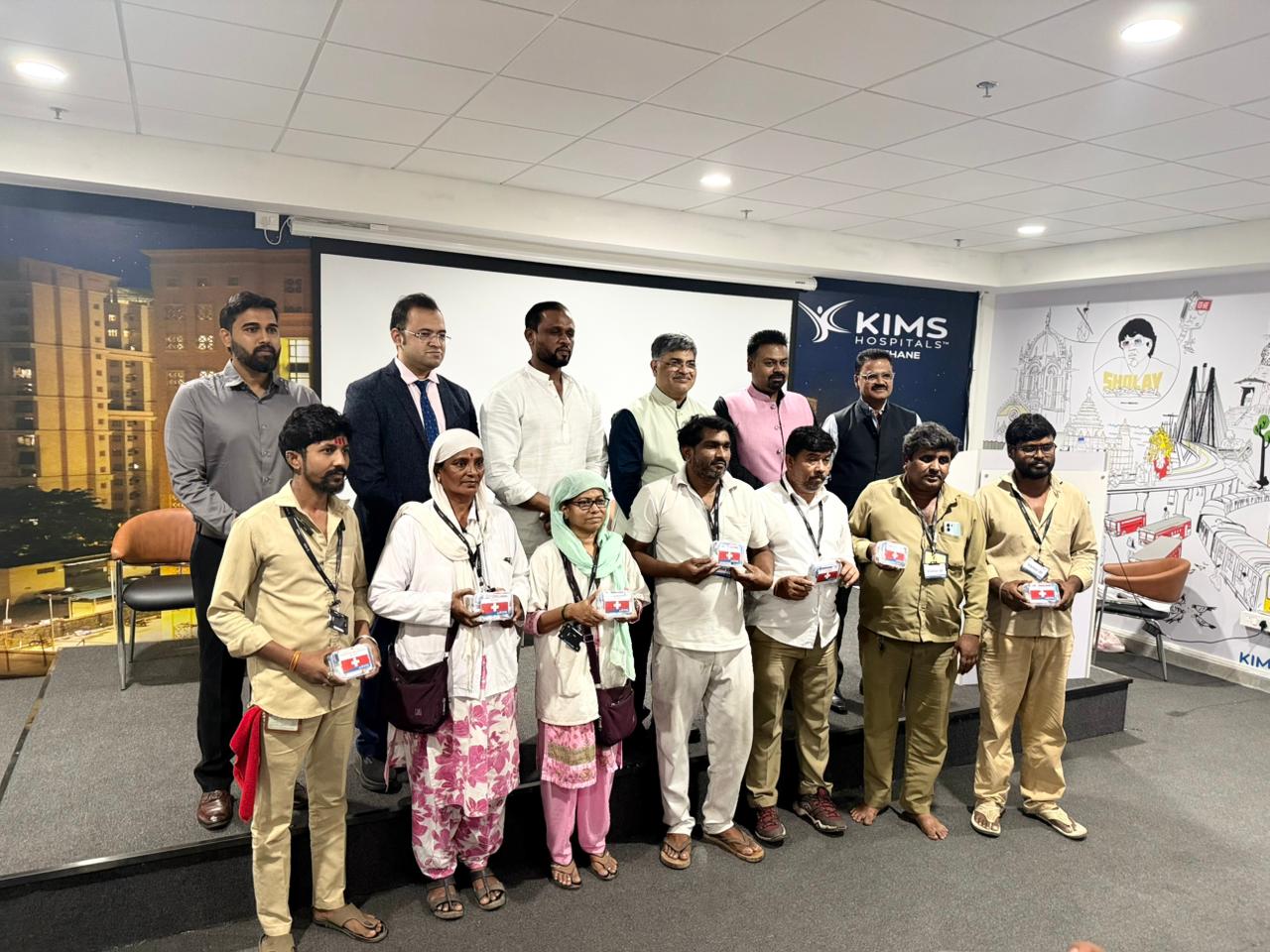
As road crashes and lifestyle-related cardiac arrests continue to claim hundreds of lives daily, KIMS Hospital is empowering auto-rickshaw drivers in Thane with CPR training and basic first aid. With traffic congestion often delaying emergency vehicles, auto-rickshaw drivers are frequently the first to reach accident sites and medical emergencies. This initiative equips them with life-saving skills and first-aid kits, enabling immediate support and early stabilization until professional medical care takes over.
The training includes live CPR demonstrations and hands-on training on mannequins, basic trauma care, and early patient stabilisation techniques, conducted by expert doctors from KIMS Hospital. Each trained driver is also being provided with a First-Aid Kit, strengthening on-ground emergency response.
The initiative is being carried out by KIMS Hospital in association with Amar Gharat Foundation, which is supporting community mobilisation and outreach among auto-rickshaw drivers in the region.
Speaking on the broader vision behind the initiative, Saurabh Gupta, Regional Director, KIMS Hospitals, said,
“Care during the golden hour often starts on the road. By training auto-rickshaw drivers as first responders and also offering them Oral cancer screenings, we are extending critical care beyond hospital walls and into the community.”
Highlighting the medical importance of early action, Dr. Anil Heroor, Director – Oncological Sciences, KIMS Hospitals, Thane, said,
“Many auto-rickshaw drivers are at higher risk of oral cancer due to tobacco use. Simple screenings like these can catch early signs and make a real difference.”
Dr. Hitesh Singhavi, Consultant – Head & Neck Oncosurgery, KIMS Hospitals , Thane, added,
“Oral cancer often goes unnoticed until it becomes serious. Bringing screening closer to people helps with early detection and better outcomes.”
Emphasising emergency preparedness, Dr. Ankit Biyani, HOD – Emergency Medicine, KIMS Hospitals, Thane, added,
“The first few minutes after an accident or medical emergency are critical. Training auto drivers helps bridge the gap between an emergency and ambulance care.”
Alongside the training program, KIMS Hospitals Thane is also conducting oral health screenings for participating auto-rickshaw drivers, with a focus on early detection of oral health issues among those who consume tobacco, reinforcing the hospital’s focus on preventive and community healthcare.
Through this initiative, KIMS Hospitals continues to extend care beyond hospital walls, empowering everyday citizens, strengthening emergency response systems, and building a safer, more prepared community in Thane.
6, Feb 2026
MNJ Institute Performs 250+ Robotic Surgeries, Boosting Cancer Care and Training
MNJ Institute of Oncology performs over 250 robotic-assisted surgeries strengthening gynaecological cancer care and surgical training
Hyderabad, Feb 06: MNJ Institute of Oncology, a government-run tertiary cancer centre with more than five decades of service, has conducted over 250 robotic-assisted cancer surgeries during the past 30 months, delivered free of cost to patients from economically weaker and middle-income backgrounds.
A significant proportion of these procedures have been performed for gynaecological cancers, which account for a substantial share of the institute’s surgical workload. Over 150 robotic-assisted gynaecological cancer surgeries have been carried out in the last 2 years, primarily for cancers of the cervix, uterus, and ovary—conditions that often require surgery in anatomically narrow pelvic spaces where precision is critical.
According to India’s National Cancer Registry Programme, cervical cancer continues to be among the most frequently diagnosed cancers in Indian women, contributing to a considerable share of cancer-related morbidity and mortality. While cervical cancer remains a major focus, uterine cancer is another condition where robotic-assisted surgery gives surgeons a clear advantage in delivering good outcomes.
Commenting on the institution’s approach, Dr Ramesh Maturi, HOD, Surgical Oncology, MNJ Cancer Hospital said,
“Our experience with the da Vinci surgical system has supported our ability to deliver complex gynaecological cancer surgeries within the public healthcare system. In gynaecological cancers, where surgery is often performed in anatomically narrow pelvic spaces, the robotic platform provides greater control and precision, including the ability to perform nerve-sparing procedures that can help reduce post-surgical sexual and urological complications. As a publicly funded cancer hospital, its use is guided by careful clinical judgement, with robotic-assisted surgery adopted selectively across gynaecological, urological, and upper and lower gastrointestinal cancers to ensure meaningful benefit and sustainable use of resources for the population we serve.”
At MNJ Institute, robotic-assisted surgery has been adopted selectively for complex pelvic procedures, including radical hysterectomies and staging surgeries, especially in cases where standard laparoscopic approaches may be technically challenging.
Dr Joseph Benjamen, Director, MNJ Cancer Hospital said,
“As a public institution providing specialised cancer care, the responsibility extends beyond introducing advanced technology to ensuring it is used in a manner that strengthens access, consistency, and accountability in patient care.”
Dr Umakanth Goud and Dr Murlidhar, Professors and Unit Heads, Department of Surgical Oncology at MNJ Institute of Oncology, have been instrumental in the adoption and clinical integration of robotic-assisted surgery, strengthening both patient care and surgical practice at the institute.
Alongside being at the forefront of patient care, MNJ Institute is a premier teaching institution with a strong national reputation that attracts surgical trainees from across India. As a centre of excellence in surgical education, the institute integrates advanced technology to help public hospitals set the tone and standards for the responsible use of modern devices in patient care.
MNJ Institute said its experience reflects how advanced surgical platforms, when applied judiciously within the public sector, can contribute to expanding access to minimally invasive cancer care while strengthening training and institutional readiness.
6, Feb 2026
SIMS Hospital strengthens healthcare partnership with Seychelles during President Herminie’s India Visit
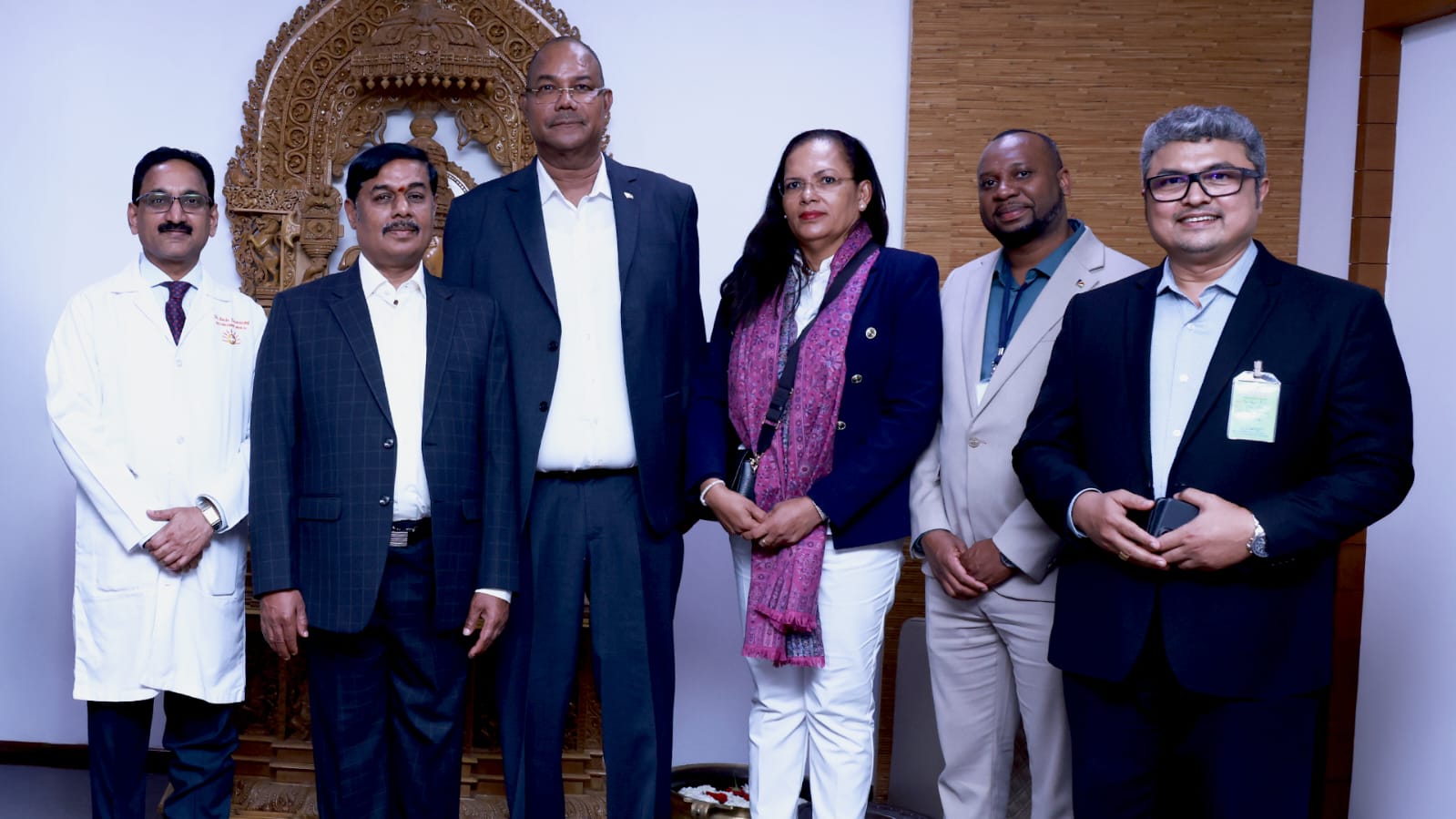
Left to right: Dr. Raju Sivaswamy, Vice President, Dr. Ravi Pachamuthu, Chairman of SRM Group, President of the Republic of Seychelles, His Excellency Dr Patrick Herminie, Mrs. Veronique Herminie, First Lady of the Republic of Seychelles, Dr. Marvin Nolan Fanny, Hon’ble Minister of Health, Seychelles, Mr. Paul Robin, CEO, SIMS International.
Chennai, Feb 6: His Excellency Dr. Patrick Herminie, Honourable President of the Republic of Seychelles and Dr. Marvin Nolan Fanny, Hon’ble Minister of Health, Seychelles, met Dr. Ravi Pachamuthu, Chairman, SIMS Hospital, India, to discuss a collaborative roadmap aimed at strengthening healthcare services in Seychelles through sustainable and long-term healthcare solutions such as super-specialty medical outreach, hospital infrastructure development, digital health integration, workforce support, affordable medicines, and dialysis expansion.
A team of specialists from SIMS Hospital, will be travelling to Mauritius and Seychelles next week to evaluate the existing healthcare systems in Seychelles and assess the way forward in coordination with the Ministry of Health. As part of the discussion, it was also proposed to establish a periodic super-specialty medical camps for patients accessing the Seychelles Government Healthcare System, aimed at enhancing diagnostic accuracy and improving clinical outcomes through advanced medical technology, while building local capacity and strengthening the Ministry of Health’s clinical capabilities to position Seychelles as a regional healthcare leader within the East African zone.
The discussion focused on key areas including the development of an integrated, real-time national digital healthcare network connecting all health centres and hospitals nationwide to improve patient data management, referrals, clinical decision-making, transparency, and service delivery. It also covered the supply of high-quality, cost-effective pharmaceuticals and medical products, supported by the implementation of a cloud-based, real-time inventory management system across pharmacy stores to reduce stock-outs, wastage, and procurement inefficiencies, along with periodic outreach super-specialty medical camps, hospital infrastructure development, healthcare workforce strengthening through nurse recruitment, and the expansion of dialysis services to improve accessibility and continuity of care for renal patients.
The meeting also focused on providing technical advisory support for modernisation of existing government hospital infrastructure, planning and development of new hospitals and primary healthcare facilities, and adoption of global best practices in hospital design, patient safety, and operational efficiency.
In addition, healthcare workforce support was highlighted through the recruitment and deployment of qualified nursing professionals, leveraging SRM’s proven education ecosystem, while supporting skills transfer and long-term capacity building for local healthcare staff.
The meeting also included discussions on expansion of dialysis services through strengthening of the existing dialysis unit with satellite support services, ensuring round-the-clock specialist assistance and improving accessibility and continuity of care for renal patients.
In his comments, H.E. Dr. Patrick Herminie, President of the Republic of Seychelles said, “Our focus is to strengthen public healthcare services and ensure access to quality care for all citizens. Partnerships that support infrastructure, digital health, trained workforce, and specialised services such as dialysis are important steps towards long-term healthcare capacity building in Seychelles.”
Speaking about the meeting, Dr. Ravi Pachamuthu, Chairman, SIMS Hospital, India said, “Healthcare collaboration must focus on strengthening systems from infrastructure and trained professionals to digital networks and affordable access to medicines. We are honoured to engage with the Honourable President and explore opportunities that can contribute to sustainable healthcare capacity for Seychelles.”







